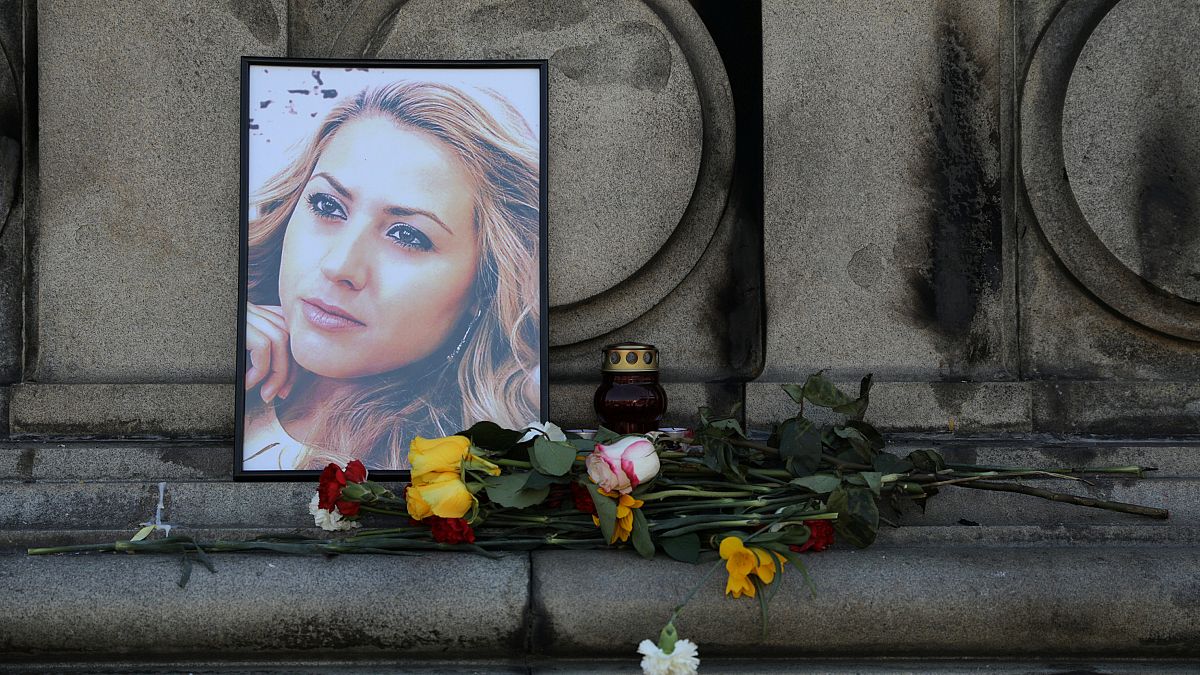The reported rape and murder of Bulgarian journalist Victoria Marinova raises concerns about threats to media freedom, but it also serves as a stark reminder that Bulgaria should prioritize efforts to combat violence against women, writes a Human Rights Watch researcher.
The reported rape and murder of journalist Victoria Marinova, 30, in Bulgaria this weekend raises concerns about threats to media freedom. But it also serves as a stark reminder that Bulgaria should prioritize efforts to combat violence against women. Instead, authorities are taking worrying steps to eschew Europe’s most far-reaching tool to fight it.
Bulgaria’s Constitutional Court dealt Bulgarian women a devastating blow when it ruled in late July that a comprehensive regional treaty to address violence against women is unconstitutional. Over 40 Bulgarian groups and prominent people immediately condemned the decision. European institutions should, too.
Bulgaria is one of eight EU member states that have not ratified the Council of Europe Convention on Preventing and Combating Domestic Violence and Violence against Women, known as the Istanbul Convention. In February, parliament members requested a ruling on the convention’s compatibility with Bulgaria’s Constitution, amid claims that the convention’s calls for gender equality aim to encourage homosexuality, and warnings that it could lead to “questioning traditional values of Bulgarian society.”
In an eight-to-four ruling, the Constitutional Court declared that the convention’s use of “gender” as a social construct contravenes Bulgaria’s Constitution, which specifies a binary understanding of “sex”-- male and female – that is “determined at birth.” Despite the Bulgarian constitution’s protection against sex-based discrimination, the court says this “does not mean equal treatment of both sexes” because biological differences must be taken into account. As one legal scholar wrote, “[T]he court literally reduced women to their childbearing function.”
More and more frequently, European governments are using fear-mongering arguments to advance homophobic and sexist agendas. Efforts to prevent and respond to gender-based violence are becoming frequent casualties of such politics. It is a dangerous game, and European Union and Council of Europe leaders should vehemently object.
European states and institutions that created and promoted the Istanbul Convention should be deeply concerned by the Bulgarian court’s – and politicians’ -- distortion of the treaty’s efforts to combat violence against women. Such gross misrepresentations demonize organizations working to prevent and respond to domestic and other violence against women, and anyone who seeks their help. It silences discussion of such violence and, more broadly, of discrimination against women. And it reinforces the idea that family violence is a private matter, and even acceptable.
These views flagrantly contravene European Union and Council of Europe values of human rights, equality, and dignity. They are also incompatible with the guarantee of non-discrimination in the European Convention on Human Rights, which Bulgaria ratified decades ago.
Bulgarian women are paying the price for such misconceptions about women’s rights. Of all 28 EU member states, Bulgaria fared worst in a 2017 European Institute for Gender Equality analysis of the prevalence, severity, and underreporting of violence against women. Over 30 percent of Bulgarian women in a 2016 study reported experiencing domestic or other gender violence.
Ripple effects from the Bulgarian ruling are also already apparent. Following the decision, the Bulgarian Academy of Sciences announced it would halt work on a program to support teachers in addressing gender inequality. The Education and Science Ministry had already reportedly stopped a school-based survey that addressed gender, violence, and stereotypes.
Across the region, public officials’ open disdain for advancing equality and combating violence against women is gaining steam. Shortly after Bulgaria’s parliament refused to ratify the Istanbul Convention in February, Slovakia followed suit. Croatia’s government ratified the Convention in June, but not before significant protests over its use of the term “gender.” Poland’s ruling PiS party has threatened to withdraw from the convention on grounds that it endangers traditional Polish culture and values, including women’s “natural role” in society. And in August Hungary’s ruling Fidesz party moved to ban gender studies in higher education.
Failing to address violence against women and girls hurts entire communities, not just women, and costs nations millions. And promoting gender equality is key to combating violence against women.
Amid the increasingly “anti-gender” and anti-Convention rhetoric in Bulgaria in January, the Council of Europe human rights commissioner, Nils Muiznieks, issued a letter to the president of Bulgaria’s National Assembly. Claims that the convention attempts to destabilize families are patently false, he said; rather, it works to fight “the main cause of destruction of families, that is, violence.” He emphasized, “[T]he Istanbul Convention is about preventing and combating violence against women and domestic violence and has no other hidden purposes or effect.”
The statement was a much-needed reminder of what should be a shared European goal to end violence against women. Bulgaria’s Constitutional Court decision instead adds fuel to the already-raging fire of government misinformation campaigns – something that women, as well as LGBTQI people, in Europe can ill afford.
The Council of Europe, European Parliament, European Commission and European Union member states should urgently condemn the Bulgarian Constitutional Court decision, take robust action to dispel the myths it promotes, and take serious measures to address such blatant disregard for Europe’s self-proclaimed core values. And in the wake of a sexual assault and murder that has shaken the public, Bulgarian authorities should take action to show they are committed to tackling violence against women in any form.
Hillary Margolis is a women’s rights researcher at Human Rights Watch.
Opinions expressed in View articles are solely those of the author.












